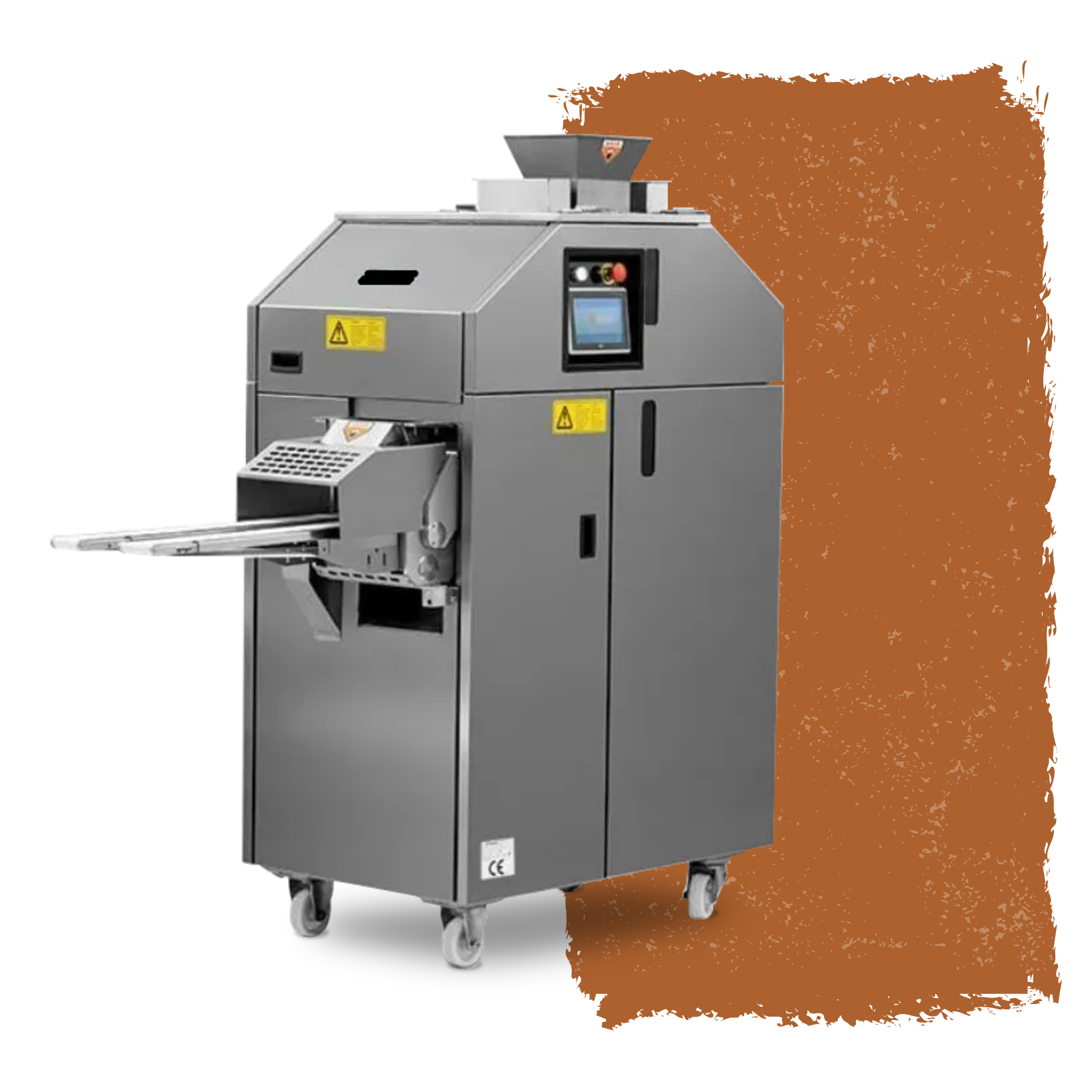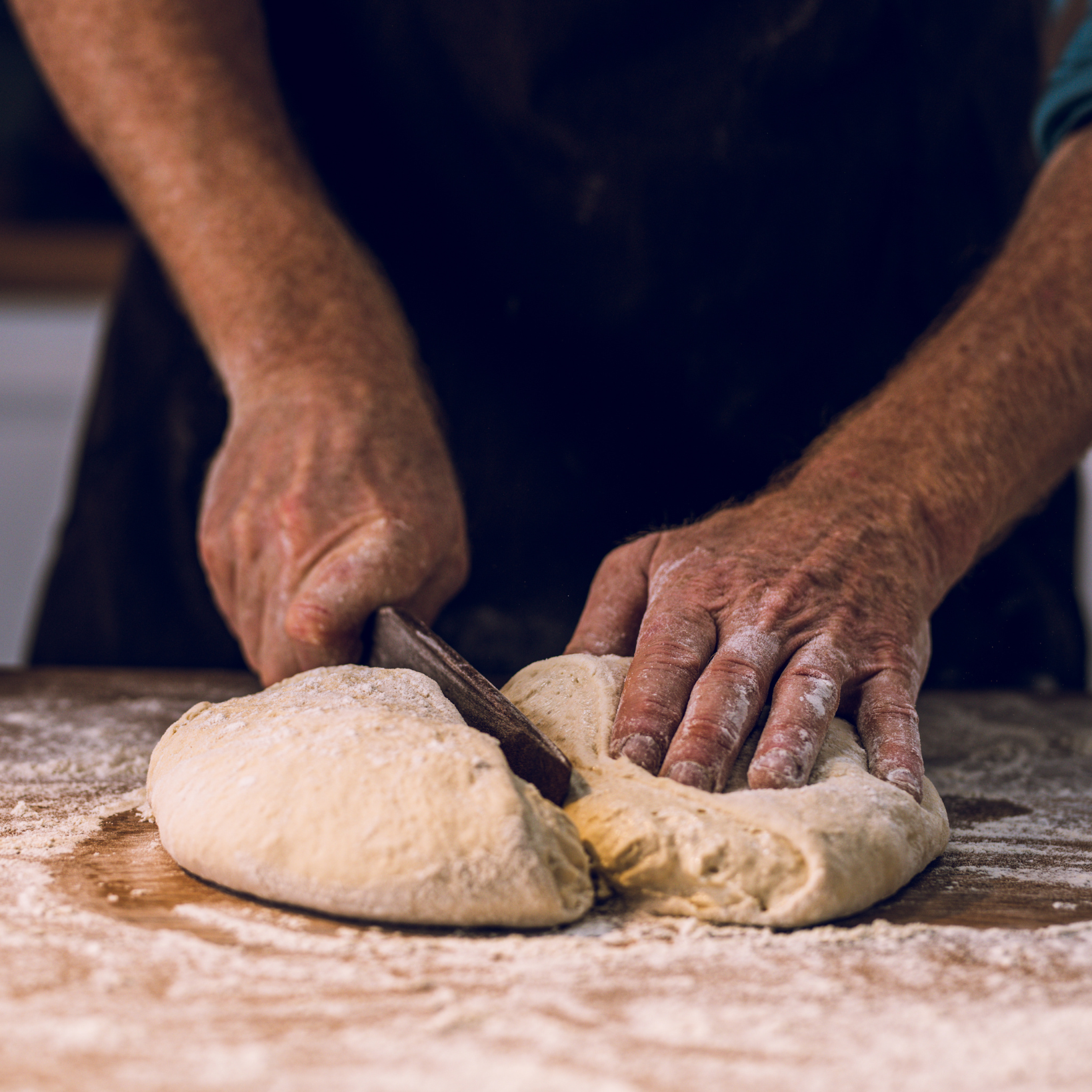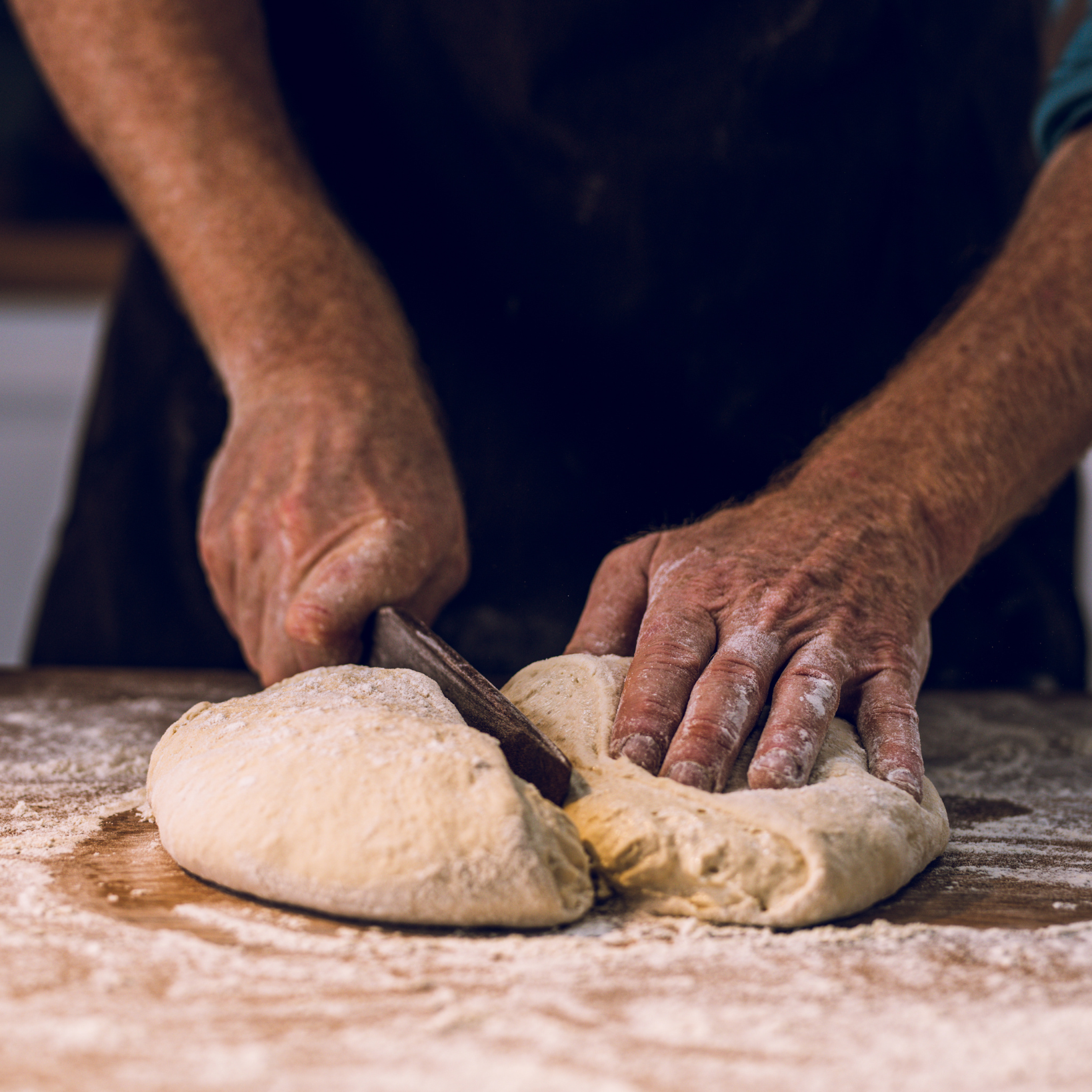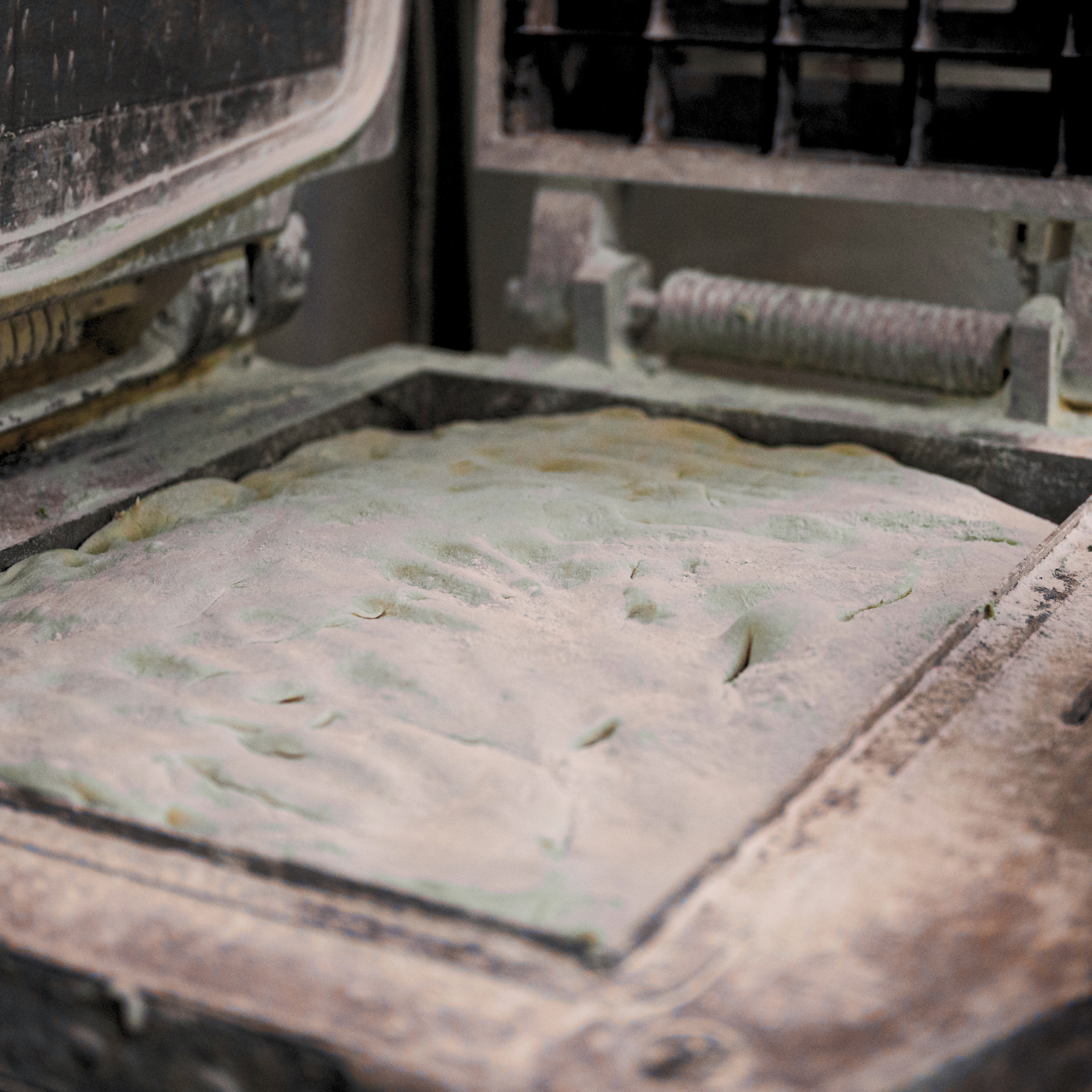Why Every Bakery Needs a Dough Divider for Consistent Results
Share this page:

At A Glance:
EFFICIENCY AND CONSISTENCY CHALLENGES
Manual dough dividing is time-consuming and leads to inconsistent results, which impacts product quality and increase waste.
THE ROLE OF A DOUGH DIVIDER
Automating the dough-dividing process helps ensure uniform portions, leading to consistent baking results and improved customer satisfaction.
KEY BENEFITS OF A DOUGH DIVIDER
Include enhanced efficiency, reduced manual labor, and preserved dough quality by minimizing handling.
TYPES OF DOUGH DIVIDERS
Explains the differences between manual and automatic dough divider and how each type is suited for different bakery sizes and production needs.
COST SAVINGS AND REDUCED WASTE
Consistent dough portions reduce waste, saving on ingredients and energy while improving overall cost efficiency.
CHOOSING THE RIGHT DIVIDER
Offers practical tips on selecting the right
dough divider based on production volume, available space, and maintenance needs.
Maximizing Dough Consistency and Efficiency with the Right Equipment
Running a successful bakery means perfecting your dough-handling process. With all the time and effort you put into creating the ideal dough, consistency is critical. However, achieving uniform results by hand can be challenging. That's where investing in a dough divider makes all the difference. Whether running a small shop or a large-scale operation, using the right dough-handling equipment ensures that your products are consistent, high-quality, and delivered efficiently to your customers.

The Challenge of Hand-Dividing Dough
If you've ever tried to divide dough by hand, you know how time-consuming and inconsistent it can be. Even with years of experience, bakers struggle to cut and weigh dough portions evenly. It's not just about aesthetics, either. Uneven dough portions can lead to inconsistent baking times and varying product quality. Some loaves may end up overbaked, while others are underdone. This lack of uniformity impacts your product line and can lead to wasted materials.
These slight differences add up when handling a high volume of orders. Using a dough divider removes the guesswork from the process so that you can focus on other aspects of your operation. It's a practical solution for maintaining consistency, whether you're producing loaves, buns, or pastries.
What a Dough Divider Can Do for Your Bakery
A dough divider is more than just a piece of machinery—it's a tool that can transform your baking process. This essential piece of dough-handling equipment quickly and accurately divides your dough into uniform portions, which saves you time and helps create a consistent product every time. Here's why every bakery can benefit from investing in a dough divider:
Consistency in Every Batch
A dough divider ensures that each dough portion is the same size and weight. Whether you're making bread, rolls, or pizza dough, consistency sets your bakery apart. Customers notice when their favorite loaf is always the same size and texture. A dough divider helps you meet their expectations by delivering the same high-quality product day after day.
Increased Efficiency
Time is precious in a bakery. Dividing dough by hand is labor-intensive and takes time away from other critical tasks like mixing, shaping, and baking. A dough divider speeds up the process significantly, allowing you to handle more orders in less time. A dough-dividing machine frees your staff to focus on other production parts, ultimately boosting your bakery's overall output.
Improved Dough Quality
Handling dough too much can affect its texture and rise. When the dough is overworked, it can become tough, impacting the final product. A dough divider minimizes the amount of manual handling, so the dough maintains its structure and integrity. With a machine dividing, you preserve the dough's texture and produce a better, more uniform product.
Types of Dough Dividers
When choosing the right dough divider for your bakery, it's essential to understand the different types available. There's no one-size-fits-all solution—what works for one bakery might not work for another. Here are two common types to consider:

Manual Dough Dividers
Manual dough dividers require some physical effort but are an excellent option for smaller bakeries or those just starting. These machines allow you to press the dough into equal portions using hand-operated levers. While it's slower than an automatic option, it still saves considerable time and produces far more consistent results than hand-dividing.

Automatic Dough Dividers
An automatic dough-dividing machine is the way for more extensive operations or those looking to scale production. These machines take care of the entire process, from pressing the dough to cutting it into portions, all with minimal input from your staff. Automatic machines are fast, precise, and ideal for high-volume production environments where consistency is crucial.
Reducing Waste and Saving Costs
Inconsistent dough portions don't just affect your product quality—they impact your bottom line, too. When portions are too large, you're using more dough than necessary, which increases your costs. And if portions are too small, you might discard any product that doesn't meet your standards. A dough divider can significantly reduce waste by portioning the dough perfectly every time.
Over time, this precision can add up to significant cost savings. You're not just saving on ingredients, either. With more consistent portions, you can bake more efficiently, reducing energy costs and minimizing the need for rework or discarded batches. Investing in a dough divider is an investment in the financial health of your bakery.
Choosing the Right Dough Divider
So, how do you choose the right dough divider for your bakery? It depends on the size of your operation and the types of products you bake. If you're running a small bakery or café, a manual dough divider might meet your needs. It offers consistent results without a significant upfront investment. However, an automatic dough-dividing machine is an intelligent choice if you want to expand your production or handle a higher volume of orders. It provides the speed and precision you need to keep up with demand.
When shopping for a dough divider, consider the following factors:
- Production volume: How many dough portions must you divide per hour or day?
- Space: Make sure the machine fits comfortably in your kitchen or production space.
- Ease of use: Choose a machine your staff can operate efficiently without extensive training.
- Maintenance: Look for a machine that's easy to clean and maintain, as this will save you time in the long run.
- Flexibility: Some dough dividers can handle a variety of dough types and weights, giving you more flexibility in your product line.
Improving Workflow and Reducing Strain
A dough divider benefits your products and your team. Manually dividing dough is repetitive and can lead to strain and fatigue for your staff. Over time, this can result in injuries or slower production rates. Automating the dough-dividing process reduces the physical strain on your employees and makes their work more manageable.
This leads to a better work environment and improves employee satisfaction. Happier, healthier staff are more productive and less likely to take time off due to injuries. This is another way a dough divider can contribute to your bakery's overall efficiency.

Dough Dividers: A Smart Investment for Consistency and Growth
Consistency is the cornerstone of any successful bakery. Whether you're making bread, pastries, or pizza dough, customers expect the same quality every time they walk through your door. A dough divider ensures that your products are uniform, your process is efficient, and your team is working at its best.
By investing in a suitable dough-dividing machine, you're setting your bakery up for long-term success. You'll reduce waste, improve efficiency, and maintain the high standards your customers have come to expect. This small change can greatly impact your production process and your bottom line.
If you're ready to improve your bakery's efficiency and consistency, explore our selection of high-quality dough dividers. Find the perfect solution for your needs and see how the right equipment can transform your workflow.
Visit our dough-handling product page to learn more and choose the best fit for your bakery's growth.
Share this page:
You May Also Be Interested
Site Map
AMI Equipment
Expertly crafted ovens and automation solutions for authentic, traditional flatbread production. Fully customizable and backed by lifetime support.
Follow Us:
Copyright © 2024 AMI Equipment - All Rights Reserved




